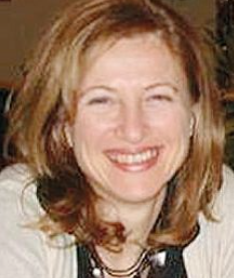Dr. Cinzia Da Vià
Professor of Physics at the University of Manchester UK
Lectures
Radiation Detectors: Imaging What You Cannot See
Radiation instrumentation has played a fundamental role in nuclear and particle physics discoveries as well as in life saving medical and biological imaging and other fields since more than a century. The presentation will review the historic progression of radiation detectors and imaging technologies in correlation with key physics discoveries. Special emphasis will be given on more recent silicon detectors and their application in the large experiments at the CERN Large Hadron Collider and in other fields like Space, Environment, Biology and Medicine. Finally, a review on future detector developments will be explored.
The presentation is currently 1 hour and can be extended up to 2 hours.
Harnessing Energy, The Only Solution for a Viable Future
In the current rise of environmental challenges and depletion of conventional energy sources the quest for a viable future requires a profound transformation in the world’s energy landscape. This seminar will explore definitions, conventional and renewable sources, storage, integration of smart grids, optimisation of resource utilization and minimisation of waste. Emphasis will be given on the importance of education and on the global contribution to a fast and efficient energy transition.
Nuclear Energy: Present Status, Challenges and the Rise of a New Era
This presentation will discuss the current status of nuclear energy in the world, recall some of its key aspects and explore the solutions which are being proposed to accelerate its rise to a potentially new and transformative era.
Women and Climate Change: Reskilling and Upskilling
The impact of climate change presents a formidable challenge to global ecosystems, economies, and societies. In this context, understanding the role of women in climate change mitigation and adaptation is of paramount importance. The international frameworks and policies increasingly emphasize the need to integrate gender perspectives into climate change responses since women, particularly in developing countries, bear the disproportionate burden of climate change impacts. Collected data show that climate-induced disasters and environmental degradation intensify existing gender disparities, affecting women‘s livelihoods, health, and overall well-being. This talk explores the intricate connection between women and climate change, highlighting their unique vulnerabilities, indispensable contributions to the global decision-making process, and potential for transformative action.
Radiation Instrumentation Interface with Industry and the Medical Sector
A great overlap exists among instrumentation developed for high energy physics (HEP) and other applications. The medical and biological sectors are historically the closest beneficiaries to such developments. This 2h presentation explores the HEP instrumentation assets which have spin-off into medicine and biology with emphasis to the key role played by industry to facilitate and enhance such transition.
About

Cinzia Da Vià is a Professor of Physics at the University of Manchester UK, she received her PhD at Glasgow University in 1998 and is an expert in radiation detectors for High-Energy Physics and Medical applications. She has been working on radiation hard silicon detector development for the Large Hadron Collider (LHC) since 1998 and in 1995 she participated in the discussions which led to the design of 3D silicon sensors and has been working on the development of this technology ever since. She formed and led the 3D ATLAS pixel R&D Collaboration (2007-2014), which successfully designed and industrialized the first 3D sensors to be installed in an experiment. 3D sensors are operating in the ATLAS experiment since 2015. In 2010, she proposed the use of Micro-Electro- Mechanical Systems (MEMS) technology to fabricate sensors for micro-dosimetry in Hadron therapy and is currently involved in vertical integration of smart-systems. She is in the scientific committee of several international conferences on Radiation Detectors and Instrumentation and is the co-founder of the ERDIT (European Radiation Detector and Imaging Technology) Network to promote Radiation Imaging Technology research across different fields of application in Europe. Since 2014 she is an elected member of the IEEE NPSS RISC Committee.